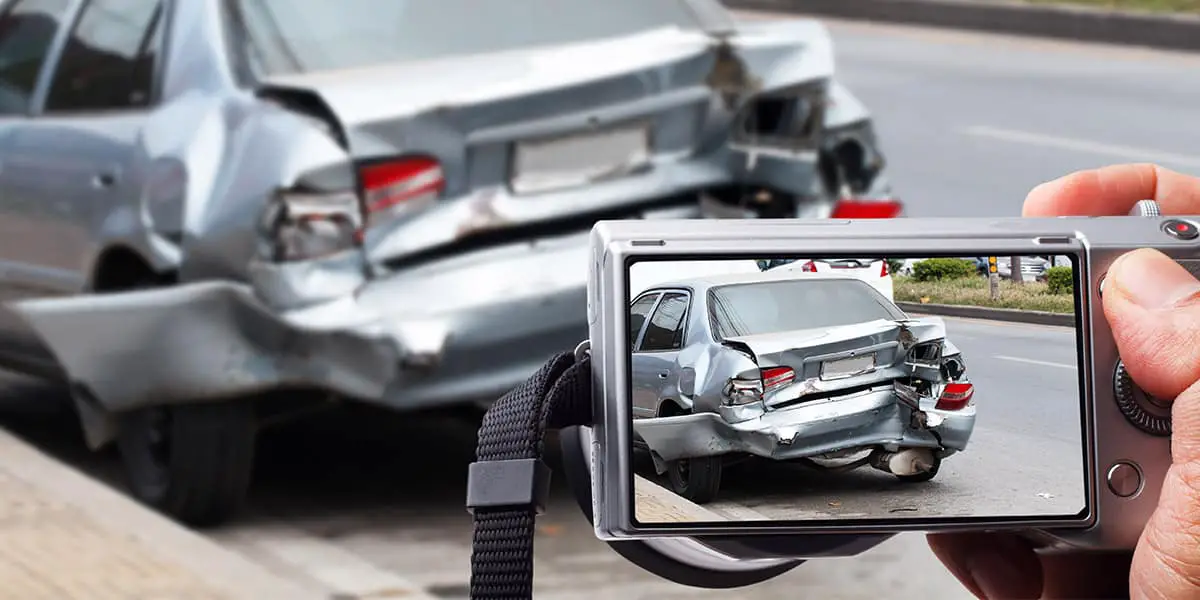Last Updated on August 1, 2023 by John Robinson
If you desire to build your best car insurance claim or injury lawsuit after you’ve been involved in a car accident, it’s extremely important to gather as much evidence as possible about the crash. Evidence can be anything that demonstrates how your accident transpired, and how it affected you.
The more information you have to support your claim for injuries and other losses (“damages”), the more likely you are to obtain a fair car accident settlement. A car accident lawyer in St. Louis can help you understand why evidence is crucial in a car accident case, and the types of evidence you should gather.
The Burden of Proof
In the infrequent event that your accident claim becomes a civil lawsuit in court, the burden of proof for recovering compensation lies with you, the individual seeking damages. That means you and your legal team bear the burden of establishing that the other driver was at fault for your car accident and that you suffered injuries and damages because of it.
The evidence in your claim is used to substantiate:
• Your story of the events leading up to the accident
• Physical injuries
• Lost wages
• Your pain and suffering following the accident
Evidence often comes in many forms. Typically, your legal team will use documents such as medical bills and records, photographs, and witness statements or testimony as evidence in your claim.
Evidence From the Scene
Even insignificant car accidents can have disorientating results. After an accident, check on the well-being of your passengers, then call for emergency services if there are any obvious injuries. Regardless of the severity of the injuries, call the police and wait for a report to be made. Police reports created at the time of the accident are an important evidence piece.
It’s also imperative to take the time necessary to gather all pertinent evidence at the scene of your accident. Obtain the name, address, driver’s license number, vehicle plate numbers, and insurance information from all the other drivers involved. If any of the drivers were driving for their employer in the accident, obtain the employer’s name and contact information.
Gathering the names and contact information of any witnesses to the accident, can be useful evidence to corroborate your story in negotiations. Using your phone to take photographs of the accident scene, the condition of the vehicles involved, the location of traffic signals, and any skid marks and vehicle debris can be essential evidence in your car accident case.
Evidence and Damages
Gathering all records related to your car repairs and car rentals can be imperative to recovering your property damages. This includes documentation of any repairs made to your car before the accident as well. Being able to demonstrate the value of your vehicle and most recent repairs can help your legal team compile the correct total amount of damages you’ve suffered.
One of the most important components of evidence in your car accident claim relates to proving the nature and extent of your injuries. After a car accident, it’s important to gather all of your timely medical treatment information for any injuries you’ve suffered.
Keeping a journal with all of the important information relating to all of your healthcare appointments, especially when you were required to pay any money, can be used as evidence to support your car accident case.
Once you have completed all of your treatment, gather a complete copy of all of your medical records, all of the medical bills from each provider, and all of the necessary pay stubs, and W-2s as evidence to support any lost wages you’ve faced.
Additional Evidence
Once you’ve filed a personal injury lawsuit, you can obtain information from the at-fault driver(s) through the use of car accident interrogatories. Interrogatories are written questions that the other party must answer, under oath, within a specified period. Interrogatories gather evidence for your case and provide information about the defendant’s conduct before your accident.
You can also gather evidence through a deposition. A deposition is an out-of-court testimony, given under oath, that’s recorded and transcribed by a court reporter. Depositions can also be used as evidence at trial to challenge the credibility of a witness when their testimony has changed over time.
If you’re injured in a car accident, gathering the right evidence is important to proving your claim. Finding the right personal injury lawyer, with experience gathering evidence in personal injury claims, can help you provide the right evidence in your car accident claim, and recover damages.



